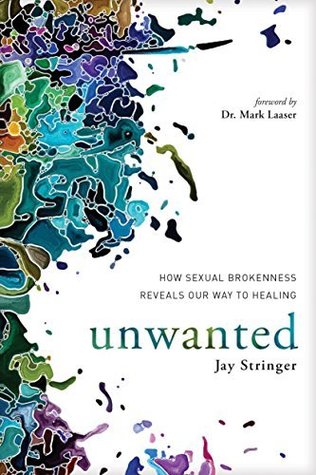More on this book
Community
Kindle Notes & Highlights
by
Jay Stringer
Read between
July 14 - August 2, 2019
At the heart of the gospel is the belief that our brokenness does not separate us from the love of God. It connects us.
This concept, now faithfully advanced in Jay Stringer’s work, is that our sexual fantasies are nothing to be ashamed of. They are, in fact, our greatest teachers.
It is my conviction that the God of the universe is neither surprised by nor ashamed of the sexual behavior we participate in. Instead, he understands it to be the very stage through which the work of redemption will be played out in our lives.
Discussion of sin should serve the strengthening of Christian faith, not the weakening of it. “Our concepts of sin should never be fashioned or deployed in a manner designed to harm people, to break their spirits, to marginalize them, to destroy their sense of belovedness, or to constrain the conditions of their flourishing.”[5]
World-renowned addiction expert Dr. Gabor Maté wrote, “Emotional isolation, powerlessness, and stress are exactly the conditions that promote the neurobiology of addiction.”[17]
The golden child’s strategy is to deny the truth of a rigid family through presenting a perfect image to the world at the cost of his soul. He learns that compliance and competence allow him to maneuver as a saint within the rigid borders of the family. Although he may be struggling with depression or pornography, he correctly discerns that revealing these struggles would be far too costly. He defaults to presenting a perfect public self and elects to keep the painful and troubled dimensions of who he is beyond detection.
Fifty-three percent of my survey respondents said their fathers were too strict and focused on rules. Men who grew up with strict fathers were more likely to develop fantasies of power over women in the type of pornography they pursued. This included women who were younger, with smaller body types, and women from another race who appeared, to them, submissive. The implication was that sons who were powered over tended to grow up to be men who desired power over others.
My research found that 47 percent of men and women did not have someone they could talk to when something difficult happened in their childhood. It is not that these children did not have parents; it is that children discern whether or not they can feel safe bringing the difficulties of life to their parents. Think about it like this: If you are bullied at school, why share this with your family when they’ve consistently avoided offering genuine empathy in your own home?
One of the most glaring areas in which parents were remiss was in talking to their children about sex.
First, as Bessel van der Kolk, a pioneer in the field of trauma, wrote, “We have learned that trauma is not just an event that took place sometime in the past; it is also the imprint left by that experience on mind, brain, and body.”[1] For example, if you were called stupid as a child, the imprint of the wound may be revealed in your relentless attempts to be competent or the toxic shame you feel when someone realizes you do not know how to do something.
Second, trauma affects not only your mind but also your body. This is why you might hear people say, “I was completely traumatized and couldn’t say anything” or “I was scared stiff after the bang” or “My knees started shaking after I heard that my dad had been hospitalized.”
The majority of those who struggle with unwanted sexual behavior choose passivity over against asking for what they need or being honest about what they are experiencing. They roam through life feeling overworked or underappreciated, which sets up entitlement for experiences they believe they deserve.
Sex is considered a woman’s right, not a man’s (the husband is to ensure that all forms of sexual touch are pleasurable for her). Sex for selfish personal satisfaction without regard for the partner’s pleasure is wrong and considered evil. Sexual touch and intercourse were to be celebrated in joy and not in sadness, anger, disinterest, or self-interest.
it is Jesus who gets placed on a torture stick, and people must look at him in order to be saved.[4]
I highlighted this sentence and then tried to find out the church that ordained the author. I couldn't find any information on the subject. My curiosity was piqued because of his use of the phrase "torture stick." I have run across that term from only one source: pamphlets from Jehovah's Witnesses.
I strongly recommend you refrain from telling your spouse or others the details related to your unwanted sexual behavior until they have adequate levels of support around them.
Empathy is connecting with the emotion that someone is experiencing, not the event or the circumstance.”[1]
people will dismiss or exploit you if you offer excessive niceness.
The first roadblock for those who struggle with sexual behavior is a pervasive experience of failure. More than 60 percent of people in my research look back over their lives and see only many failures.
when you are invited to only fight against something rather than pursue purpose for something, you are merely caught in the flow of an addiction: meaninglessness escape pain and boredom pursue unwanted sexual behavior as poison, anger, and counterfeit identity feeling unwanted meaninglessness
The mark of healing is not merely the cessation of problematic behavior but rather a life filled with greater passion, contribution, and purpose.


